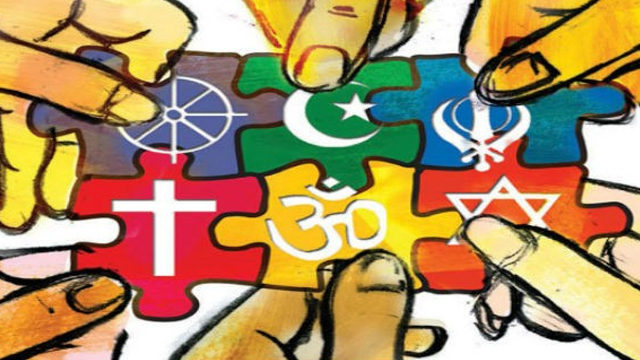One of the things that we, as a nation, pride ourselves is our religious diversity and the fact that we are secular country, which means that all religions — irrespective of the number of followers — are awarded equal treatment. In fact, the Indian constitution provides — as a matter of constitutionally-protected right — the right to worship to all its citizens.

Which basically means that whether you’re a Hindu, a Muslim, a Sikh, or a Christian, you have equal rights in this country…or, at least, so it seems. However, if we stop to think for a moment…we would actually realise that that is, in fact, not true. Every religion in this country is not equal. Or, in other words, some religions are more equal than other religions. Are you confused? Well, let me explain with an example.
While the debate surrounding the Uniform Civil Code threw into focus the rights and plights of the Muslim people (or Muslim women, in particular), there are other religions that have still not been able to fight for their right to be as equal as the other religions in this country.
In fact, in 2012, a petition was moved before the Supreme Court, by yet another woman! She, however, was neither a Muslim nor a victim (at least, not in the conventional sense of the word). She was a Sikh and a scholar — Birendra Kaur — whose petition was unceremoniously dismissed by the Punjab and Haryana High Court, with some rather “caustic” comments.
She, however, remained undeterred in her pursuit for “equality”, which is what made her move the apex court where she literally dragged the judiciary as well as the legislature to ask a simple question: ‘What is the scope of the word ‘Hindu’…a question that made the Supreme Court Bench — comprising the then Chief Justice Altamas Kabir, Justice S.S. Nijjar and Justice J. Chelameswar — serve notices to both the Centre (through both the Ministry of Minority Affairs as well as the Central Agency) as well as the attorney general, G. E. Vahanvati.
The question that was posed for adjudication was both pertinent from a legal as well as a Constitutional point of view. After all, if the Constitution guarantees equality to all religions, how could followers of the Sikh, Buddhist and Jain faiths be “dubbed” as Hindus…not just in the Hindu Personal Laws but more importantly, in the Indian Constitution itself, where Article 25 (b) states that the reference of Hindus shall include in its ambit persons professing the Sikh, Jain or Buddhist religion.
Of course, these two points actually need to be looked at separately.
Let us first talk about the Constitution itself. The rationale for that is simple: all Indians are considered under the broader term of “Hindus” other than those who belong to religions that originated outside India. Thus, the Constitution actually does not look at “religion” per se since Hindus themselves are not defined. Thus, the Constitution probably looks at Hindus to cover all people practicing religions that originated in “Hindustan”.
It is a different matter, however, when we come to the personal laws…which is where several scholars have opined that the Hindu marriage traditions do not, in fact, apply to Sikhism at all. For example, they have argued that the concept of ‘Kanyadaan’ in the Hindu marriage tradition looks at women as a “commodity” and is therefore against the principles of ‘gender-equality’ as preached by the Sikh Gurus.
This, of course, is a small example…but one that highlights that there are differences — however, subtle — between religious customs and traditions. However, even if there are no differences between religions (and their customs), we cannot treat some religions as being more equal then others. That, somehow, defeats the very spirit of a secular country and that is something that we all need to think about…as a secular nation that promises equality to all!































